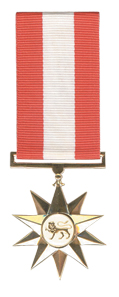| |||||
| Decades: | |||||
|---|---|---|---|---|---|
| See also: | |||||
The following lists events that happened during 1993 in South Africa.
| |||||
| Decades: | |||||
|---|---|---|---|---|---|
| See also: | |||||
The following lists events that happened during 1993 in South Africa.


The Pan Africanist Congress of Azania is a South African national liberation Pan-Africanist movement that is now a political party. It was founded by an Africanist group, led by Robert Sobukwe, that broke away from the African National Congress (ANC) in 1959, as the PAC objected to the ANC's "the land belongs to all who live in it both white and black" and also rejected a multiracialist worldview, instead advocating a South Africa based on African nationalism.
The following lists events that happened during 1999 in South Africa.
1994 in South Africa saw the transition from South Africa's National Party government who had ruled the country since 1948 and had advocated the apartheid system for most of its history, to the African National Congress (ANC) who had been outlawed in South Africa since the 1950s for its opposition to apartheid. The ANC won a majority in the first multiracial election held under universal suffrage. Previously, only white people were allowed to vote. There were some incidents of violence in the Bantustans leading up to the elections as some leaders of the Bantusans opposed participation in the elections, while other citizens wanted to vote and become part of South Africa. There were also bombings aimed at both the African National Congress and the National Party and politically-motivated murders of leaders of the opposing ANC and Inkatha Freedom Party (IFP).
1990 in South Africa saw the official start of the process of ending Apartheid. President of South Africa, eid. President De Klerk unbanned organisations that were banned by the government including the African National Congress, the South African Communist Party and the Pan Africanist Congress. The African National Congress, Umkhonto we Sizwe, suspends its armed activity within South Africa. Political prisoners including Nelson Mandela were released. Nelson Mandela met ANC leader Oliver Tambo for the first time in 28 years at a meeting in Sweden. Mandela also traveled to England to thank the people for their support in the campaign to free him. South Africa withdrew its troops from Namibia, which was granted independence. 1990 also saw marches in support and against the formation of a new post-Apartheid South Africa.
The following lists events that happened during 1960 in South Africa.
The following lists events that happened during 1952 in South Africa.
The following lists events that happened during 1959 in South Africa.
The following lists events that happened during 1978 in South Africa.
The following lists events that happened during 1991 in South Africa.
The following lists events that happened during 1992 in South Africa.
The following lists events that happened during 1936 in South Africa.
The Azanian People's Liberation Army (APLA), formerly known as Poqo, was the military wing of the Pan Africanist Congress, an African nationalist movement in South Africa. In the Xhosa language, the word 'Poqo' means 'pure'.

David Bambatha Maphgumzana Sibeko was known as the "Malcolm X of South Africa" and began his political career as a journalist for the black South African magazine Drum. During his tenure with that magazine, he became a leading figure within the Pan Africanist Congress of Azania. During the 1970s he headed the United Nations Observer Mission of the Pan Africanist Congress (PAC) in New York City and used this position to popularize the PAC particularly among African Americans. In 1979 Sibeko was partially successful in a leadership coup against Potlako Leballo. However, he failed to get support from the Second Azanian People's Liberation Army, recruited from the 1976 student protest generation and was shot dead during an argument with them at his flat in Oyster Bay, Dar es Salaam, Tanzania on 12 June 1979.
One Settler, One Bullet was a rallying cry and slogan originated by the Azanian People's Liberation Army (APLA), the armed wing of the Pan Africanist Congress (PAC), during the struggle of the 1980s against apartheid in South Africa. The slogan parodied the African National Congress's slogan 'One Man, One Vote', which eventually became 'One Person, One Vote'. It is not to be confused with the controversial protest song "Dubul' ibhunu".
John Nyathi "Poks" Pokela was a South African political activist and Chairman of the Pan Africanist Congress (PAC).
Zephania Lekoame Mothopeng was a South African political activist and member of the Pan-Africanist Congress (PAC).

The Gold Star for Bravery, post-nominal letters GSB, was instituted by the President of the Republic of South Africa in April 1996. It was awarded to veteran cadres of the Azanian People's Liberation Army, the military wing of the Pan Africanist Congress, who had distinguished themselves during the "struggle" by performing acts of exceptional bravery in great danger.

The Star for Conspicuous Leadership, post-nominal letters SCL, was instituted by the President of the Republic of South Africa in April 1996. It was awarded to veteran cadres of the Azanian People's Liberation Army, the military wing of the Pan Africanist Congress, for distinguished conduct and exceptional combat leadership during the "struggle".

The Gold Service Medal was instituted by the President of the Republic of South Africa in April 1996. It was awarded to veteran cadres of the Azanian People's Liberation Army, the military wing of the Pan Africanist Congress, for thirty years service.

Clarence Mlami Makwetu was a South African anti-apartheid activist, politician, and leader of the Pan Africanist Congress of Azania (PAC) during the historic 1994 elections.
A terrorist attack on St. James Church in Cape Town, South Africa left 11 people dead and 58 wounded.